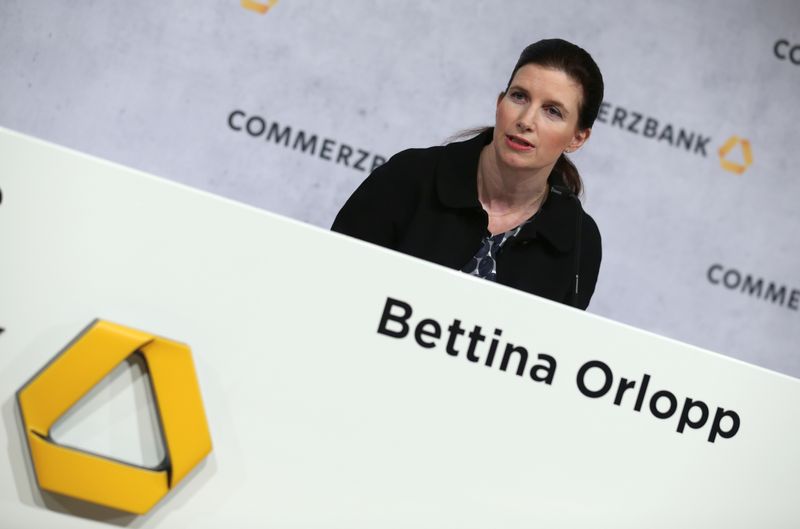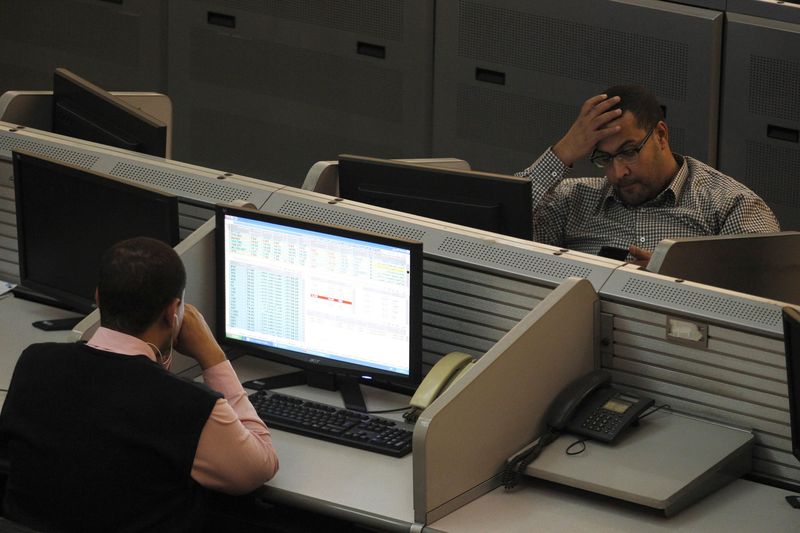By John O’Donnell and Tom Sims
FRANKFURT (Reuters) -Commerzbank is ready to put CFO Bettina Orlopp in charge of talks with UniCredit when the German bank’s supervisory board meets next week, two people with knowledge of the matter said, as the Italian rival plans a takeover has the eye.
UniCredit recently bought a 9% stake in Commerzbank (ETR:), and expressed interest in a merger. The meeting next week would pave the way for exploratory talks between the two.
UniCredit’s move is the most ambitious attempt yet at a pan-European banking merger, but it faces significant political hurdles in Germany ahead of national elections, not least from unions fearing job cuts.
Commerzbank will enter into talks to fulfill its duty to shareholders, although the bank’s management remains opposed to a takeover by the Italian lender, one of the people said.
The decision to let Orlopp lead the talks could come as early as Tuesday, when Commerzbank’s supervisory board and management begin meeting for two days near Frankfurt to discuss the group’s strategy and response to UniCredit, the people said.
Commerzbank declined to comment.
The bank’s CEO, Manfred Knof, announced he would step down as CEO at the end of 2025, just hours before UniCredit announced its stake, raising questions about whether he was best placed to lead the talks. He has rejected overtures for a takeover.
Commerzbank is a hub of the German economy with more than 25,000 business customers, almost a third of German foreign trade payments and more than 42,000 employees.
The Italian takeover interests have already sparked a backlash and are an embarrassment to the German government, which appeared to have sold part of its stake without realizing UniCredit would buy it.
LONG-TERM INTEREST
UniCredit first approached Berlin to highlight its stake in Commerzbank in 2017 and was considering a competing bid for the German lender in 2019 when Commerzbank discussed a partnership with Deutsche Bank.
In 2022, UniCredit CEO Andrea Orcel approached Knof about a potential deal before the war in Ukraine, people with knowledge of the matter told Reuters.
About a year ago, UniCredit showed interest in the state interest, but Berlin never entered into discussions, one of the sources said. The bank declined to comment.
When Orcel returned this month to take over the deployment, German government officials were caught off guard, several people with knowledge of the matter told Reuters.
A German government official said the government had no intention of selling the shares to a strategic investor and had expected the shares to be bought by multiple buyers.
Commerzbank immediately urged the government not to sell more of its remaining 12% stake, one of the people said.
That person said any takeover could undermine the flow of credit to German companies by involving the bank in complex merger talks and expose Germany to debt risks in Italy.
GERMAN CONUNDRUM
Orlopp, deputy CEO of Commerzbank and one of Germany’s most prominent bankers, said this week that the government should retain its remaining stake.
“We are all very surprised by the process,” Orlopp told journalists in Berlin. “That’s why the most important thing now is to solve it calmly, to think about what is now on the table and how we should deal with it.”
Orlopp took on her current role in 2020 during a tumultuous period for the bank – when US investor Cerberus, a major shareholder at the time, rebelled and pushed for changes to the bank’s strategy and management.
In UniCredit’s home market of Italy, the government is positive about the bank’s efforts to build a large European group through a merger with Commerzbank, as long as the Milanese bank retains its central functions in Italy, sources close to the case.
Orcel refused to buy Monte dei Paschi at the eleventh hour in 2021, forcing the government to ask for more time from the EU to return the bank to private investors, damaging relations with the bank.
The discussions about a takeover are unfolding at a delicate time for Germany. The coalition government, one of the most unpopular in recent history, is preparing for next year’s national elections.

Strong recent gains for the right-wing Alternative for Germany (AfD) and the left-wing BSW are putting pressure on the three-party government.
That pressure is greatest on the smallest member of that coalition, the liberal FDP party, which heads the Ministry of Finance and is responsible for selling the shares.


